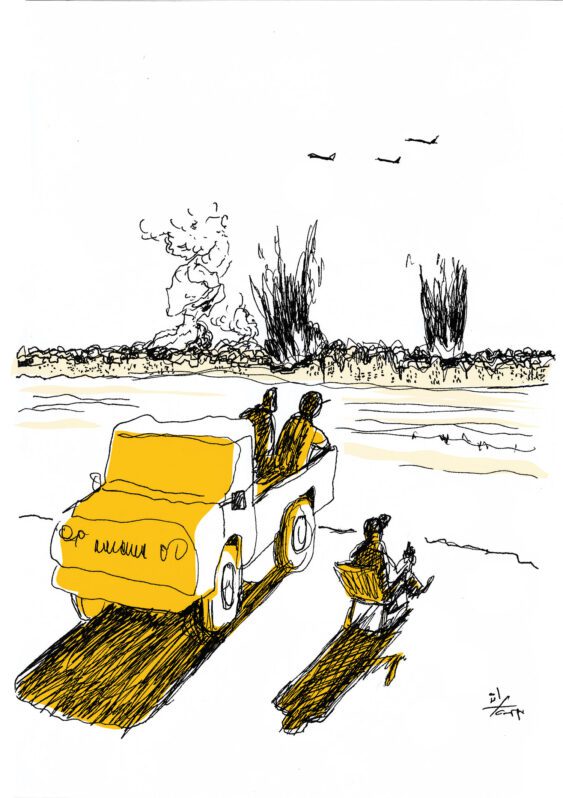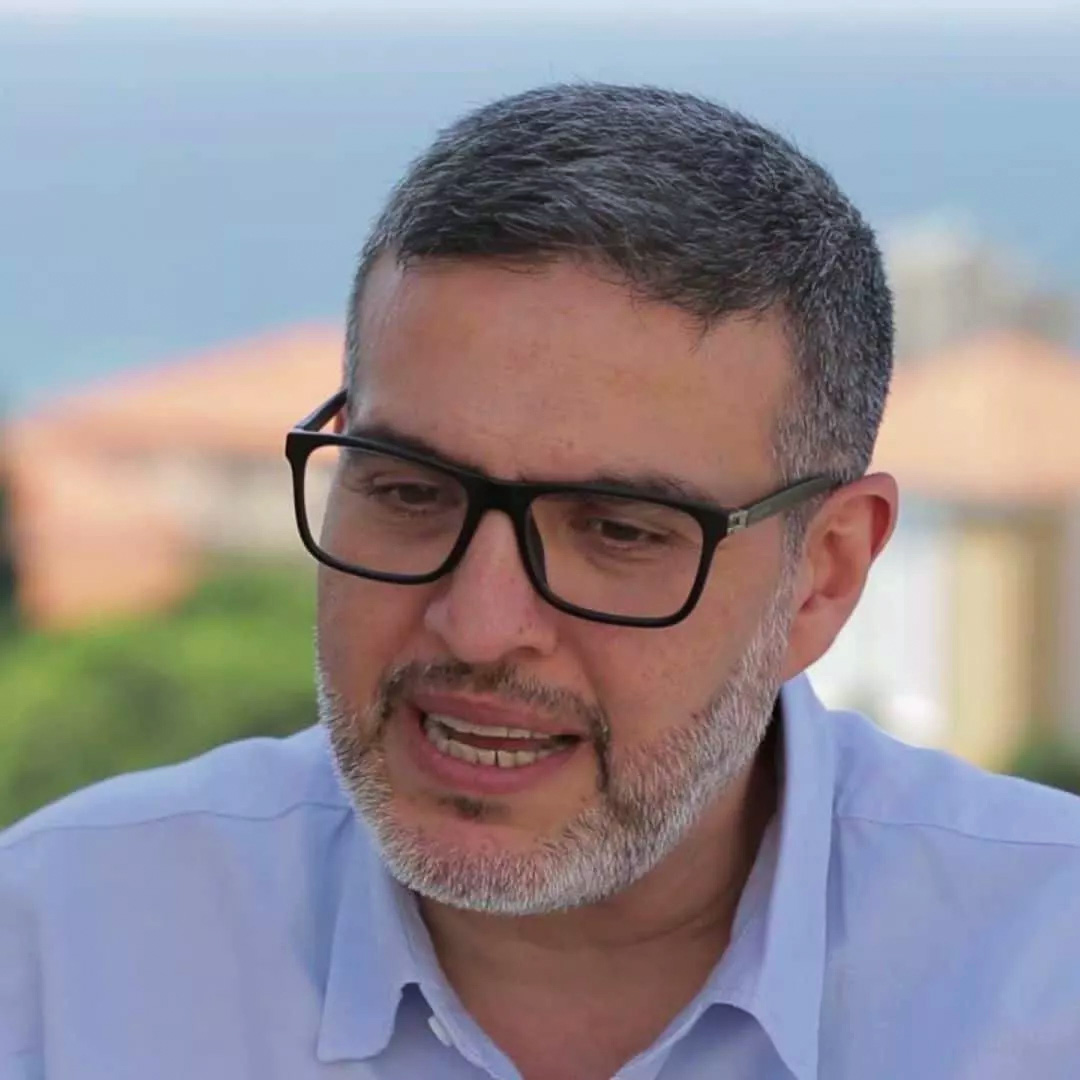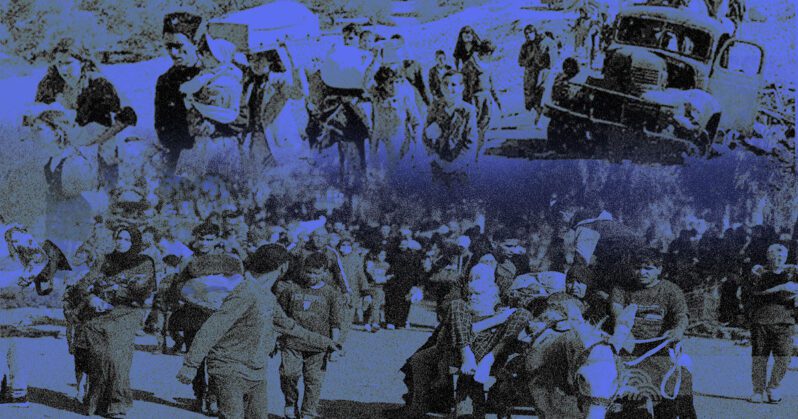Moroccan Court Proceedings: Towards an Amazigh Language of Rights

Moroccan newspapers have reported an unprecedented incident at Moroccan courts where a judge had decided, in an open hearing at a southern court, to enable litigants to communicate in Amazigh [also known as Tamazight] to discuss all the files presented to the court panel. During the proceedings, the judge made sure he communicated in the litigants’ mother tongue. This was a novel approach to avoid difficulties in communication and to meet judicial efficacy requirements. The judge kept communicating with the litigants in Tamazight which he speaks fluently, as well as with an interpreter translating for the rest of the court panel who did not master the language.
The General Context of the Initiative
This “individual” initiative by the Moroccan judge comes after nearly four years of designating Amazigh, alongside Arabic, as an official language in the new Constitution (Article 5).[1] The Amazigh movement activists are still demanding that more decisions be ratified to reflect this achievement on the ground, especially with regard to the fields of education, media, access to justice and public administrations.
For decades, calls have been made to enshrine Tamazight in the Constitution as an official language in Morocco. Legal rights activists were able to unify their demands and form civil associations to call for an official recognition of the Amazigh language, which is spoken by over half of the Moroccan population.
The Language Used for Litigation Before Moroccan Courts Between the Arabization Law and the Constitutionalization of Tamazight
The Arabization, Morocconization, and Unification Law of 1965 was a radical turning point in the language of litigation in Morocco where many different languages had been used. Prior to the law, the use of Arabic language was limited to a narrow range that included the Islamic law judiciary which was purely Arabic, as well as to the rabbinical judiciary for disputes brought before the governor, or pasha, for the initial decision. Meanwhile, French and Spanish languages remained dominant in most Moroccan courts until its independence.
Since 1965, Arabic became the official language of litigation in all kinds of courts of different levels, except for contracts written in French and registered in courts under business records. The decision issued on June 29, 1965 by the Minister of Justice played a crucial role in implementing the decree. As a result, the official public trend seeking the adoption of the Arabic language for litigation was reinforced. Translation was provided as a mechanism for communication between parties that are not fluent in Arabic, pursuant to the requirements of a fair trial and in order to ensure that the rights of the defense are safeguarded.
Professional translation to and from foreign languages is available due to the availability of competent translators, with a degree from institutes specialized in this field. A similar service to and from Tamazight is still not possible, as long as there is no sworn translator specialized in the language. Courts often assign some public volunteers to translate the questions or answers for litigants who can only speak the Amazigh language.
Oftentimes, some assistants who do not even have the minimal legal requirements, are assigned to translate the court’s proceedings, raising objections by several legal rights activists underlying the need to adopt the Amazigh language in litigation, especially for Moroccans who can only speak this language. These protesting voices maintain that the status quo [by only allowing Arabic for litigation, and the lack of translators specialized in Amazigh] constitutes a flaw affecting the principle of fair trial.
The Judiciary and the Use of Amazigh
Although Amazigh was acknowledged in the 2011 Constitution as an official language, alongside Arabic, the implementation of such provision is dependent on enactment of laws required to make it official. Under the current laws, Arabic is the only official language allowed for litigation, pursuant to the Arabization, Morocconization, and Unification Law of 1965. However, during some sessions, judges who have mastered Amazigh ask the litigants some questions in this language. Amazigh has been widely used unofficially during some mobile sessions held outside the court’s walls, in order to bring justice to citizens (marriage documentation sessions in rural areas).
Despite the Ministry of Justice’s observance of the need for judges to be acquainted with Amazigh as a criterion in deciding on appointments of new and transferred judges, such requirements have not been implemented. Many courts are located in areas where the majority of the population speaks Tamazight, and these courts are presided over by judges who do not speak this language. This is due to many reasons; namely, the lack of an updated database regarding the use of Amazigh in courts and judges' proficiency in this language. Moreover, and due to unequal development across regions, a large number of judges coming from regions whose majority speaks Amazigh, want to work in the cities, rather than in rural or remote areas that lack any incentives for work.
Are Pleadings in a Language Incomprehensible by the Litigant a Violation of Defense?
This issue has been recently raised in an interesting case before the Court of Cassation. The court’s decision[2] thereon was as follows:
“With regard to the argument on violation of the defense’s rights, given that the appellant speaks Amazigh, not Arabic, and the court did not enable them to get a lawyer, nor did it ask them whether they are proficient in Arabic or ask about the reason for their appeal, the decision may be challenged. However, since the appellant did not request a translator at any stage of the proceedings and did not seek a lawyer, and the court verified their identity, stated the charge, and discussed the case in which the appellant defended themselves, the argument is unfounded.”
In this decision, it seems the Court of Cassation recognizes the principle that litigation in a language incomprehensible by the litigant is considered a breach of the rights of defense, although it did not apply such principle in this particular case for circumstantial reasons that I shall refrain from discussing here as to whether or not they are justified, for this issue is off topic.
Amazigh Language Before Courts: Any Prospects?
The law on determining the stages of activating the use of Tamazight as an official language and the methods to integrate it in education and other areas of public life, is considered a priority. This law is among the most important laws that should be issued promptly in order implement the new Constitution and uphold justice, one of the most [important principles required for reforming the law for a better life in Morocco].
In addition, practical strategies should be adopted to facilitate access to justice for citizens who are non-Arabic speakers. These include:
Rehabilitating translators specialized in the Amazigh language who combine legal expertise and familiarity with this language; [3]
Rehabilitating judges in Amazigh, taking this criterion into account when assigning new judges or when deciding on their requests for relocation; and
Motivating judges and other employees to work in remote areas, whether by expediting their promotion or through compensation.
This article is an edited translation from Arabic.
__________
[1] Chapter 5 of the 2011 Constitution stipulates: “Arabic is the official language of the State. The State works for the protection and for the development of the Arabic language, as well as the promotion of its use. Likewise, Tamazight constitutes an official language of the State, being common patrimony of all Moroccans without exception.
[2] See: The decision of the Court of Cassation’s criminal chamber No. 56 on Feb 15, 2010, Issue 16321/11, unpublished.
[3] Many Amazigh associations protested the Ministry of Justice which organized a translation contest in several languages, including Hebrew. These associations protested the exclusion of Tamazight. The Ministry of Justice replied that Amazigh is a national language, and that the new constitutional requirements are dependent on the enactment of a regulatory law to activate the use of this language.
Mapped through:
Articles, Inequalities, Discrimination and Marginalisation, Morocco
Related Articles



